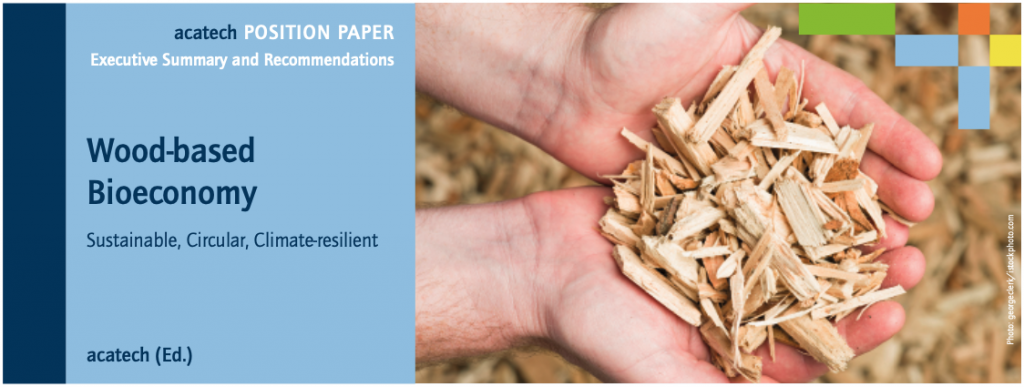
This requires a systematic approach that takes economic, environmental and social aspects into consideration. Forests supply raw materials, offer spaces for recreation and provide climate protection as well as other ecosystem services, yet are themselves impacted by climate change. Resources must be conserved and utilised efficiently. Products must be used multiple times (cascading use) for as long as possible and recycled to create high added value. The aim is to decouple economic growth and the consumption of raw materials and to contribute towards a circular economy.
This publication focuses on the use of wood as a material. Innovative examples from various economic sectors were examined, enabling factors and obstacles were identified, and recommendations were derived for decision-makers in politics, science, business and society. Policymakers should prioritise the use of wood as a material and confine the use of wood for energy purposes to timber product lines that cannot be reused as materials. Tenders should be based on sustainability criteria and enterprises should be encouraged to follow the principle of “design for reuse and recycling“ when developing products. Moreover, wider involvement from society is required, so that conflicting objectives can be discussed at an early stage.
Source
acatech, press release, 2022-11-29.
Supplier
Deutsche Akademie der Technikwissenschaften (acatech)
Share
Renewable Carbon News – Daily Newsletter
Subscribe to our daily email newsletter – the world's leading newsletter on renewable materials and chemicals










